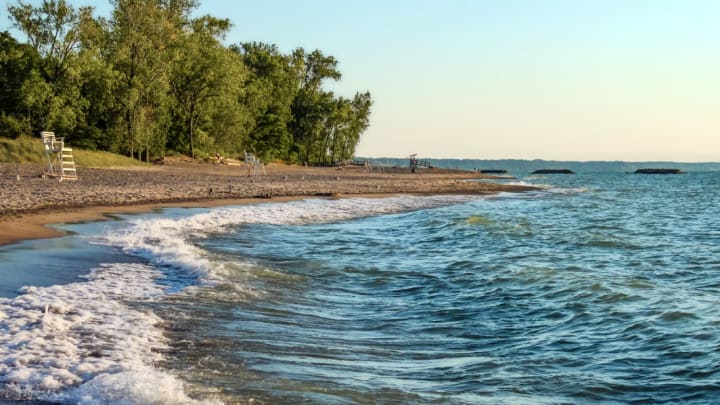For the first time in history, a body of water has the same legal rights as a U.S. citizen. As The Hill reports, voters in Toledo, Ohio passed the Lake Erie Bill of Rights at the end of February in an effort to curb pollution in the great lake.
Lake Erie borders four states and Canada, and it provides drinking water to 12 million people. It touches several metro areas, including Detroit, Toledo, Cleveland, and Buffalo, which leaves it vulnerable to pollution. In August 2014, residents of Toledo, Ohio were advised to stop drinking tap water for three days after chemical fertilizer runoff triggered toxic algae blooms in the lake.
The Lake Erie Bill of Rights aims to prevent similar incidents from happening again by allowing Toledo citizens to sue government or business entities on behalf of the water source. According to the legislation, the Lake Erie ecosystem has the legal right "to exist, flourish and naturally evolve" without being harmed by human activity.
Sixty-one percent of Toledo voters approved the measure in a special election held on February 26. Though Toledo makes up a small part of the Lake Erie basin, its shallow depth and high temperature make it one of the most ecologically diverse parts of the lake and the area most vulnerable to pollution. Environmentalists are hailing the law as a success for the people of Toledo and a big step in the growing rights of nature movement.
Even though the law was approved, there are critics fighting to make sure it never takes effect. Detractors have called the legislation anti-business, saying it will hurt farmers and kill jobs. The morning after the law was passed, the Drewes Family Farm in Custar, Ohio filed the first lawsuit challenging it for being unconstitutional.
[h/t The Hill]
